Enzyme Support
Best Digestive Enzymes for Dogs: Vet-Recommended for Digestion & Gut Health
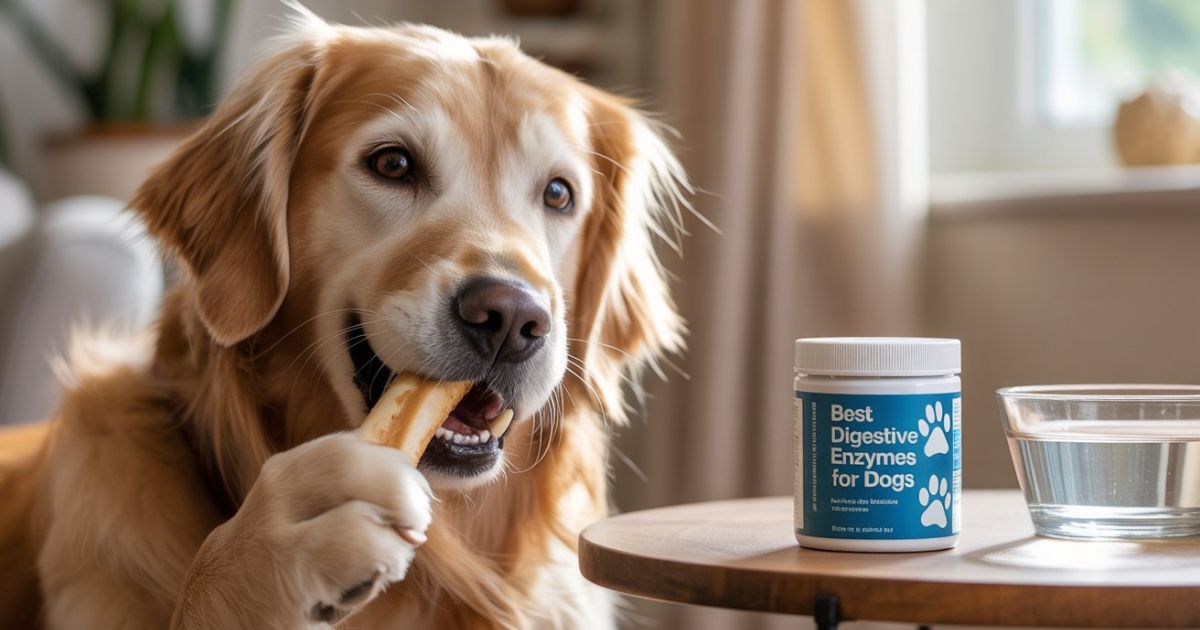
Introduction
Is your dog gassier than before? Has their belly become distended, or are their going to the toilet in an unusual manner? Mealtimes are sometimes very uncomfortable. Thankfully, vets are recommending Vets who see these cases every day have compiled this post as a checklist of next steps for you to use. Here we will also discuss Best Digestive Enzymes for Dogs.
What are Digestive Enzymes & Why Dogs Need Them

Digestive enzymes are lipase for fats, protease for proteins, and amylase for carbohydrates. They are small enzymes that take care of decomposing the food to be used by the body. When their quantity is insufficient, your dog will not be able to extract the proper amount of nutrients from his food. Even dogs in good health can face a shortage—older dogs naturally produce less, a new diet can influence production, and a change of bacteria in the intestines can cause imbalance. Low levels of enzymes will cause digestion to be slow, and the dog’s system will lack vitamins, amino acids, and energy, even if the portion is large. Using Best Digestive Enzymes for Dogs can prevent these issues.
Digestive enzyme capsules or powder mixed in your dog’s regular meal can bring up the digestive process by a great way. It is possible that even the healthiest kibble or home-cooked food can be uncomfortable for some dogs’ stomachs, which may lead to a lack of vitamins and the occurrence of gas and loose stools. Enzymes for supplementation give the small intestine a lift, which not only aids in the absorption of all the nutrients but also eliminates the occurrence of the unwanted gas. The intestinal walls need a softer method after taking antibiotics, as the medication can sting, which makes the dog’s enzyme reserves decrease. They are also the helpers that come in handy for the digestive owners who have some peculiarities inherited; the enzymes take over, complementing the body’s decreasing ones and slowly ferrying the portion of food through the gut walls that can still absorb it. Using Best Digestive Enzymes for Dogs ensures the gut functions optimally.
Common Signs Your Dog May Need Digestive Enzymes

You might be interested to know the way you can ascertain that your dog’s digestion is not easy. The most telling signs are listed below. In case you observe one or more of these, it is advisable to see a vet.
-
-
Recurrent bloating or loud: rumbling gas appearing soon after your dog eats—typically after meals within a few hours.
-
Varying stool quality: soft poop, short stretches of diarrhoea, or stools that are too hard and stubborn, making your dog strain.
-
Faeces that still show familiar food items—whole grains, chewed bones, or chunks of veg—indicating that those pieces are not getting digested.
-
Weight checks that indicate a decrease even when your dog eats the same amount as what you’ve measured.
-
The coat that used to be shiny looks dull or even feels less shiny, and sometimes there are dry patches that a moisturiser won’t fix.
-
Food issues may also show up in other forms: paws that have been licked to the point of being raw, red ears, or scratching that won’t go away. If the gut signs accompany these, you might find the whole digestive system working better with support. Observe your dog’s day-to-day closely. Minor episodes of foul-smelling waste, a few extra small piles in the garden, or an urgent need to rush outside that happened just once or twice during the normal routine can still be an indication of gut imbalance. The placing of enzymes directly into the intestine where they are needed most helps release nutrients without interruptions. This is the concept of some dog foods that are made for digestion. Perhaps your dog may benefit from such a diet. Make sure you talk to your vet first so that you can choose the formula that suits your puppy the most. Using Best Digestive Enzymes for Dogs can make a big difference.
Vet-Recommended Digestive Enzymes: What Experts Say

Many vets suggest that the first thing you should add is digestive enzymes when your dog has some digestive disorders. In the case of mild or moderate upset, they can be of significant help. Dr. Emily Foster, with over 15 years of small-animal veterinary experience, shares, “These enzymes enable dogs to digest food that is under processed and release more nutrients for absorption. The upset is also to some extent lowered.”. If after an antibiotic course the stool test results are not normalizing, I also bring the patients the treatment scheme,
“The functions of enzymatic and probiotic mixtures in the repair of the canine intestine,” a report in the Veterinary Gut Health Journal in 2025, is the initial mention by the scientific community of such a claim. The study found that dogs treated with a combination of prebiotics and digestive enzymes showed a marked improvement in fecal consistency and nutrient absorption in the shortest time of intervention, one week. Best Digestive Enzymes for Dogs were part of this study.
Moreover, Dr. Foster is quite dependent on enzyme mixtures for her routine work, which provide the exact enzyme activity per dose, are manufactured following pharmaceutical purity standards, and offer dosing instructions in layman’s terms. She always prefers products, if at all possible, that carry the “vet recommended” qualifications. These certifications are indications for pet parents that formula is designed using expert standards which facilitate thus the most effective care for Gut Health.
How to Choose the Best Digestive Enzymes for Dogs

Choosing an appropriate digestive enzyme for your dog that will make his digestion not as difficult as it seems. The following features must be present in the product to use as a guide for easier selection:
-
-
Protein, fat, and carbs digesting enzymes—Choose a supplement that contains protease, lipase, and amylase. This magic triplet breaks down protein, fat, and carbs, letting your dog get those nutrients like a champ.
-
Good ingredient origins—Choose human-consumable grade or veterinarian hospital-approved non-GMO ingredients. This lessens the chances of hidden fillers that can cause your dog to have gas or even something worse.
-
Weight-based dosing or clear measures—Give a scoop or teaspoon amount that matches your dog’s size, or provide dosage by weight, respectively, on the label. This ensures accurate measuring every time, and there is no need for maths.
-
Friendly delivery—A powder that you mix with dinner or a chew that is like a treat in terms of taste has a higher success rate than pills. A straightforward daily meal plan for your dog will be a delight to his stomach.
-
Third-party endorsement—Be on the lookout for endorsements from reputable organisations such as the American Pet Products Association (APPA) or the National Animal Supplement Council (NASC) which are a sign of reliability and correct labelling. You can be sure of the safety of the product and that the label claims have been verified by the tests conducted in the bottle upon the appearance of their logo.
-
Clear ingredient details—Pick a label that specifies the enzymes and shows their activity in units such as FCC or TOS so that you are aware of the exact working for your dog’s digestion. You will not have to do the math or make the guesses.
-
It is more likely that you will buy the right digestive enzyme for your dog’s stomach if you follow these basic rules. Besides that, your dog will get the nutrients from the food that he ate.
Top Ingredients to Look For

-
-
Protease breaks down protein into small pieces, thus the amino acids are able to reach your dog’s blood stream very fast for energy, and for repairing and rebuilding body tissues.
-
Lipase goes after fats, cutting triglycerides into simple fatty acids. These fat parts will make your dog’s skin and coat healthy and your dog will be beautiful both inside and out.
-
Amylase changes starch which is found in grains and vegetables to single sugars, thus energy delivery is sped and home-cooked diets or kibble with grains are easier for your dog’s stomach.
-
So that protein can be totally broken down, the enzymes of the animal digestives that come from fresh pineapple, bromelain and from papayas, papain take over this job. Plus they are soothing for the stomach of your dog in case of minor disorders. The proteins and nutrients that enter the bloodstream of your doggy faster are the reason why the recovery of your pup is really quick.
Even though the inclusion of probiotic bacteria is not compulsory, the microbes of this kind are very good at bringing into balance gut life. Moreover, they also extend the capacity of the enzymes by occupying the space and thus, the presence of any sneaky gut “troublemakers” is eliminated.
All the ingredients communicate with each other and play a team sport. They assist in smooth transit of food, reduce posibilites of bloat and optimize nutrient uptake. Thus, the dog is all the better for it; his eyes are brighter and he has a shinier coat as well as a rejuvenated playfulness that can easily take on any sort of adventure.
How to Introduce Digestive Enzymes to Your Dog Safely

Imagine your dog’s enzymes working naturally and smoothly without any fuss? Here are a few simple steps to achieve that:
-
-
Begin Small: For the first day, just a quarter of the total amount can be given. Observe your pet’s response.
-
Mix the powder into your pet’s food: To ensure that your pet gets the medicine without noticing, sprinkle the powder over the food and stir it.
-
Spot Symptoms: Monitor the feces—if the number of soft stools is reducing, the therapy is progressing. A shinier coat and a livelier dog are indicators of good health, too.
-
Raise the Dose: In case the first quarter goes smoothly, get the rest of the dose off the bottle and increase it gradually.
-
Keep It Cool: Naturally extracted enzymes must be used in raw food without heating, for sure.
-
Check During Illness: If your dog’s digestive problems last more than a week, take the vet’s advice without any hesitation.
-
By applying these hints, the success of your dog’s digestive system will become obvious to you. Using Best Digestive Enzymes for Dogs is the key.
FAQs: Your Quick Answers

Are enzymes good for puppies?
Most high-quality formulas are safe for young dogs, but it is always a good practice to check the dosage with your vet.
Can dogs stay on them forever?
Absolutely! As a matter of fact, the owners of mature dogs as well as those of pets suffering from gastric problems are those most positively inclined towards long-term administration of enzymes to their pets.
Will there be side effects?
Most dogs can tolerate enzymes very well, but if there is mild vomiting or softer stool, the dosage should be reduced.
Should you give probiotics too?
Of course! Enzymes are used for digestion, while probiotics give the good bacteria necessary for the gut double support.
Conclusion & Final Recommendation

Essentially, the appropriate digestive enzyme blend can simply resolve your dog’s stomach upset with no trouble.
By selecting the Best Digestive Enzymes for Dogs: Vet-Recommended for Digestion & Gut Health, you are allowing the nutrients in their food to be fully utilized, thus giving their stomach a rest, and making that ordinary walk become a delightful wag.
Never forget: always use brands that your vet trusts, take a tiny dose as a start, look for any effects, and in case you don’t see any, call the vet. A well-balanced tummy means more happy wiggles and fewer tummy grumbles.

Enzyme Support
How to Improve Your Dog Digestive Health with Enzyme Supplements | Complete Guide
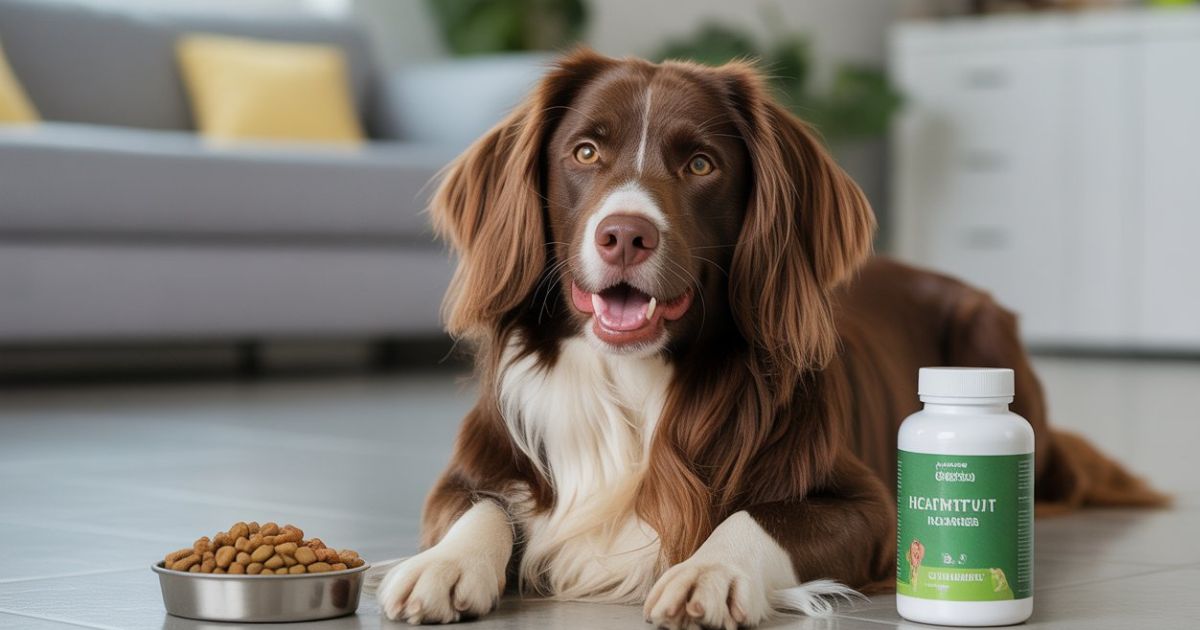
Introduction
As a responsible pet owner, you want for your fur pet to be motivated, energetic, and healthy. Defecation problems, excessive flatulence, abdominal distension, loss of appetite, and other concerning signs require further clinical attention. Good dog digestive health contributes substantially to strong immunity, and longevity. Veterinarians frequently suggest supplements for enzymes when dogs seem to be in distress post meals.
In this guide, we will provide the step-by-step processes of how to improve dog Digestive Health with enzyme supplements, the supplements’ mechanisms of action, and which actions to take today to ease mealtime discomfort for your dog.Improve
Understanding Dog Digestive Health

A dog’s digestive system performs the physiological functions of breaking food down, absorbing useful nutrients, and also excreting waste. Malfunctions can lead to:
Common Digestive Issues in Dogs
-
-
Gas and bloating
-
Loose stools or diarrhea
-
Constipation
-
Nausea and Vomiting
-
Unexplained Weight Loss
-
The underlying reasons for poor digestion in dogs are numerous. It could be low-quality dog food, intolerances to food, anxiety, stress, or simple aging. Older dogs have a harder time processing food due to a natural decline in digestive enzyme production.
In such cases, enzyme supplements for dogs can be extraordinarily helpful to improve dog Digestive Health with enzyme supplements and reduce digestive discomfort
What Are Enzyme Supplements for Dogs?

These are products based on either natural sources or plants that facilitate food digestion and metabolizing food into smaller nutrients that can be utilized.
Types of Enzymes for Dogs
-
-
Proteases – facilitate the breakdown of proteins into amino acids.
-
Amylases – breaks down carbohydrates into sugars.
-
Lipase – breaks down fats into fatty acids.
- Cellulase – aids in digestion of plant based fiber
-
Lack of sufficient enzymes can result in dogs eating and absorbing only limited nutrients from their food. This will result in fatigue, weakened immune system, and long-standing gastrointestinal difficulties unless you improve dog Digestive Health with enzyme supplements as part of your pet’s care plan.
Why Dogs Need Enzyme Supplements?
Dog’s produce enzymes for digestion in the pancreas that are released in response to food entering the dog’s mouth. With certain breeds of dogs, there might be insufficient pancreatic production of these enzymes. This lack of these enzymes can lead to these conditions:
Conditions Linked to Enzyme Deficiency
-
-
Exocrine pancreatic insufficiency (EPI)
-
Malabsorption syndromes
-
Chronic digestive upset
-
Symptoms of Digestive Enzyme Deficiency
-
-
Excessive gas and bloating
-
Increased appetite but weight loss
-
Dull coat or skin problems
-
Evidence of undigested food in stool
-
In these circumstances, enzyme supplements can be very effective to restore balance and improve dog Digestive Health with enzyme supplements naturally.
How to Improve Dog Digestive Health with Enzyme Supplements?

Combination of healthy diet and supplementation is one of the effective ways to improve your dog’s digestion. Here is a sequential approach.
Consult Your Vet First
Always consult a veterinarian before embarking on any new supplementation. They will evaluate if there are any potential benefits for your dog with added enzymes and if any supplementary issues require resolution.
Choose a High-Quality Enzyme Supplement
Focus on items that derive their natural enzymes from sources such as papaya and bromelain. Stay away from items that have fillers and preservatives.
Introduce Slowly
Start with a lower than the suggested dose, and slowly build to the suggested dose. This allows easier adjustment for your dog’s system.
Mix with Meals
Best bioavailability will be achieved if you sprinkle or mix the supplements with your dog’s food.
Monitor Progress
In the case of your dog’s stool, energy levels, and coat, keep track of the changes. The improvements should manifest within weeks.
📌 Enzyme supplements can improve dog Digestive Health with enzyme supplements while minimizing potential negative effects when following these procedures.
Benefits of Using Enzyme Supplements for Dogs

Premises owners that begin enzyme supplements for their pets have the following observation:
-
-
Improved absorption of nutrients
-
Reduced instances of gas, bloating, and discomfort
-
Enhanced immunity
-
Healthier skin and coat
-
Improved consistency of stools
-
Enhanced energy and vitality
-
When consistently used, these benefits clearly show how owners can improve dog Digestive Health with enzyme supplements in a safe and effective way.
Choosing the Right Enzyme Supplements for Your Dog
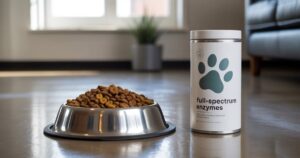
The variation among enzyme supplements is notable. Always check for the following when purchasing:
-
-
Recommended Brands by Vet
-
Pure and natural absorbers without additives or chemicals
-
Positive reviews
-
Full-spectrum enzymes consist of protease, amylase, lipase, and cellulase.
-
The utilization of full-spectrum enzyme blends should be alongside probiotics whenever feasible. Probiotics and digestive enzymes, when used in conjunction, promote a balanced gut microbiome, thereby augmenting digestive health.
Possible Side Effects and Precautions

While generally safe, supplements can lead to other problems if:
-
-
There is an overdose, causing loose stools
-
An allergic response (extremely rare)
-
Possible impacts of some medications
-
Follow the guidance provided. For issues like pancreatitis, seek professional veterinary advice regarding the medication suggested.
Further Tips to Improve Dog’s Digestion Naturally

Supplements were just one aspect of your dog’s lifestyle, as choices on lifestyle can also make a difference:
-
-
A balanced diet: Choose dog food that has complete, high quality and whole ingredients.
-
Proper hydration: Fresh and clean water aid digestion.
-
Fiber: Regulated fiber torments helps stool regulation.
-
Maintaining an active lifestyle: The regular practice of systematic exercise enhances the efficiency of the body’s digestive processes.
-
Reducing anxiety: Managing stress levels benefits the health of the intestines. Promoting a quiet atmosphere also aides in the preservation of a healthy intestine.
-
These natural steps, combined with the right supplements, further ensure you improve dog Digestive Health with enzyme supplements and lifestyle changes.
Conclusion

Your canine’s comfort and health may be affected by digestive issues. Thankfully, there are things you can do to help. Additively, enzymes can augment a canine’s gastrointestinal system and improve its general health.
A canine’s health is best served by a veterinarian’s guidance on dietary supplements. When safe supplements are used and monitored, progress can be made. In the case of enzyme supplements, they can be advantageous for a dog’s health when used properly.
In the long run, you can effectively improve dog Digestive Health with enzyme supplements to ensure your furry friend enjoys a healthier, happier, and more energetic life.
-

 Enzyme Support6 months ago
Enzyme Support6 months agoHow to Improve Your Dog Digestive Health with Enzyme Supplements | Complete Guide
-

 Probiotics5 months ago
Probiotics5 months agoVet-Recommended Probiotics for Cats with Digestive Issues | A Guide to Better Gut Health
-
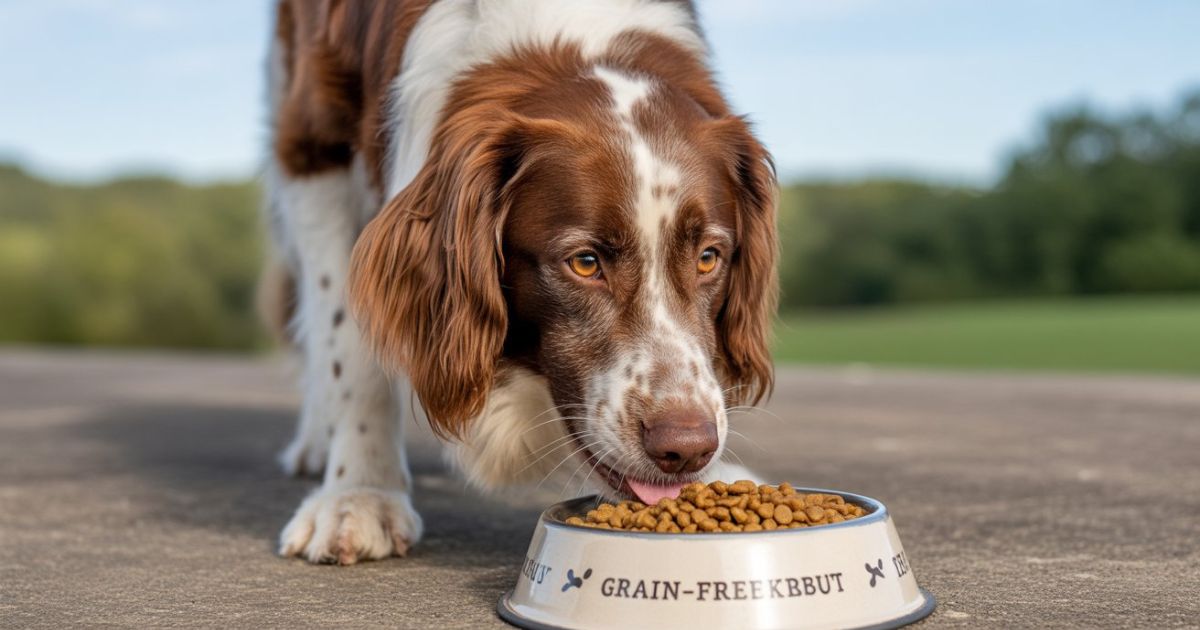
 Grain-Free vs Grain6 months ago
Grain-Free vs Grain6 months agoGrain-Free Diet for Allergic Dogs: Key Benefits Every Dog Owner Should Know
-

 Probiotics6 months ago
Probiotics6 months agoBoost Your Dog Gut Health Naturally: How Probiotics Work Wonders
-
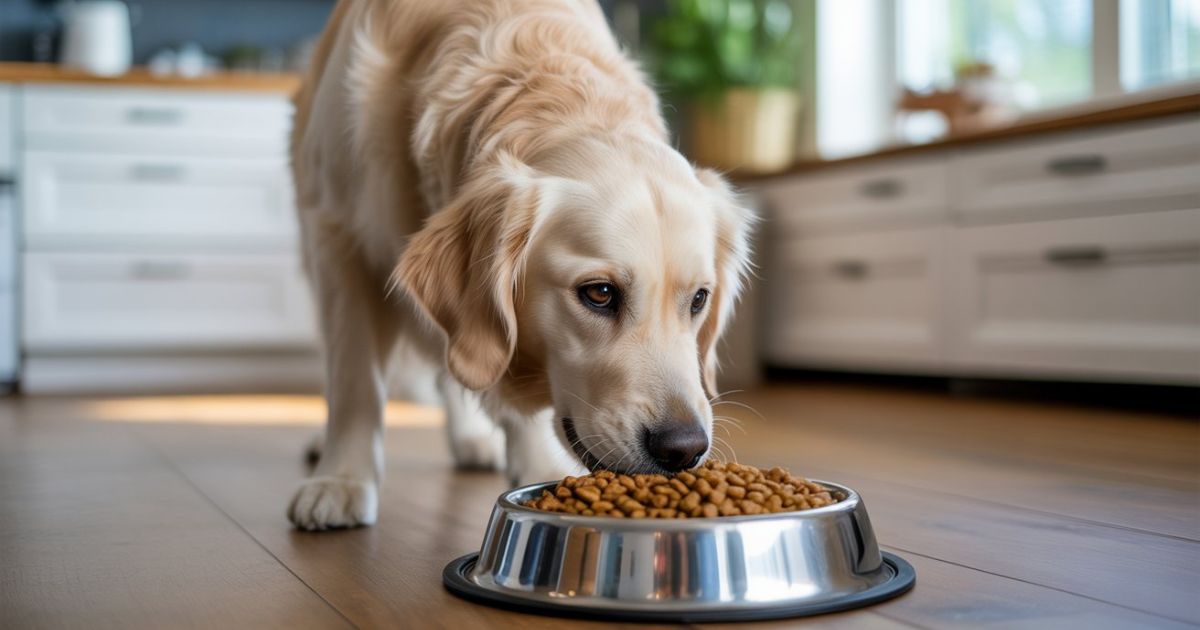
 Grain-Free vs Grain6 months ago
Grain-Free vs Grain6 months agoGrain-Free Dog Food-Good or Bad? The Essential Guide for Pet Owners
-

 Cat Health5 months ago
Cat Health5 months agoBest Fish Oil Supplements for Cats — Vet Picks Made Easy with Omega-3 Benefits
-

 Bone Broth6 months ago
Bone Broth6 months agoBone Broth for Senior Dogs – Boost Joint Health and Mobility Naturally
-

 Bone Broth6 months ago
Bone Broth6 months agoBest Bone Broth Recipe for Dogs with Sensitive Stomachs—Gentle & Homemade




